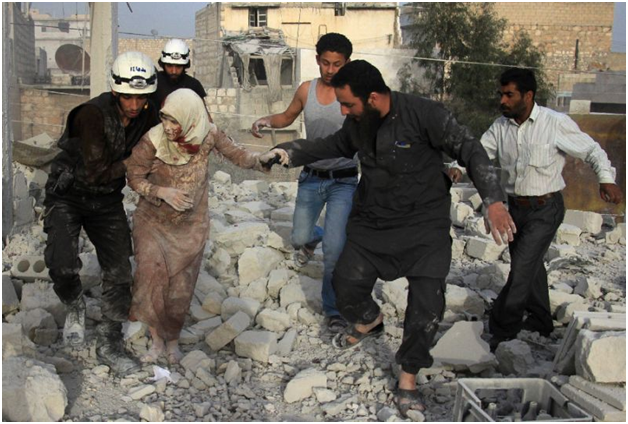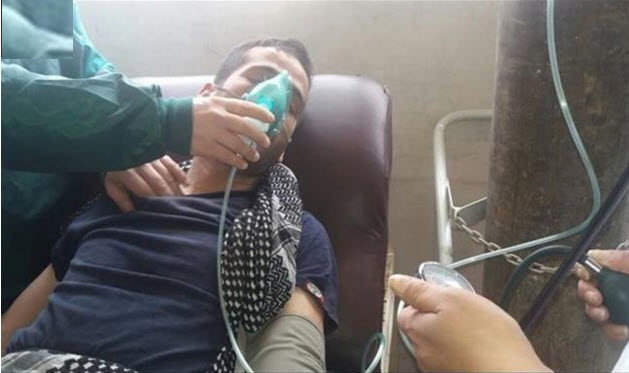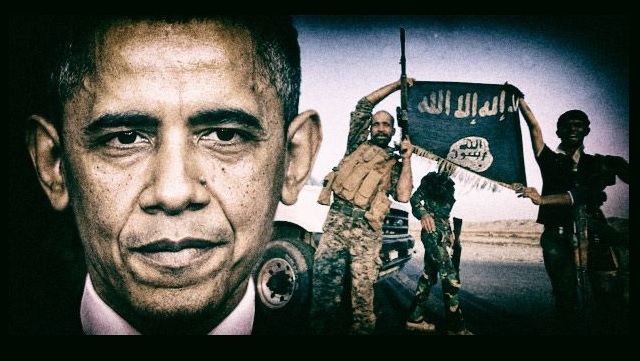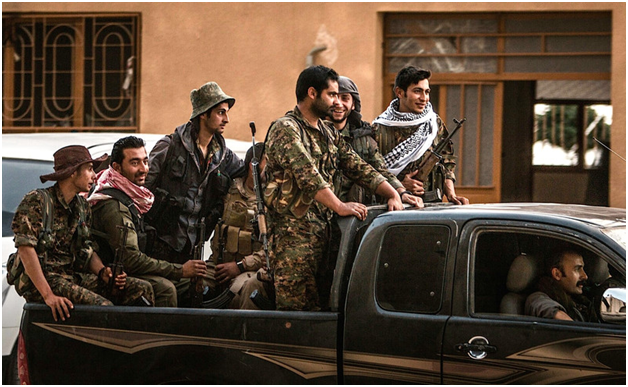‘Report card’ on Syria, Iraq and the Islamic State

Rescue of victim of Assad regime bombing, Aleppo, Syria, April 11, 2016. Source: yahoo.com.
Former U.S. Ambassador to Syria spoke at the Pensacola Tiger Bay Club Friday, April 15, 2016. The author and Florida State Rep. Mike Hill, a good friend of Israel, were among the attentive audience while he gave his ‘report card’ on the sectarian impasse in the civil war in Syria with an estimated 300,000 deaths and the failed reconciliation in Iraq among majority Shia, minority Sunni and Kurds. A Pensacola News Journal report of his Syria-Iraq ‘report card’ covered the major points of his presentation, “9 Things to know about Syria and Iraq.”
Not included in this PNJ report were his responses to questions that we posed on whether he supported the alleged covert CIA plan to overthrow Assad in 2012 as depicted in the new book, Left Boom by ex CIA operative Doug Laux. See our Iconoclast April 5, 2016 post on this issue. The other question from an audience member was directed at whether the Obama failure to implement the 2012 red line over alleged chemical weapons release that killed hundreds in the Damascus suburb of Ghouta was a lost opportunity.
As regards the question about the covert plan to overthrow Assad, Ford demurred answering that directly. However, it was evident in his response that the US had lost credibility by not undertaking pinpoint operations as push back against the Assad regime. A regime who he suggested helped to foster the rise of the Islamic State by attacks on major Sunni centers in Syria and release of fundamentalists. He did allow that the al Maliki regime torpedoed the Sunni Awakening, at the core of the Surge Plan by not continuing payments to Sunni workers and targeting leaders of the Sunni Awakening with reprisals. That he suggested drove them into the ranks of the Islamic State. Meanwhile Shia Militias fomented sectarian razzias against Sunni centers under current Iraqi PM Haidar al- Abadi. The sectarian impasse was graphically portrayed in pictures this week of fights inside the Baghdad parliament among the Shia, Kurdish and Sunni members. The drop in world oil prices hasn’t helped the situation.

Liveleak.com screen grab of Kurdish PYD-YPG victim of Jaysh al-Islam chemical attack on April 7, 2016 in Sheikh Maqsud district of Aleppo, Syria.
On the matter of Obama’s failure to follow through with his 2012 red line threat against Assad he noted that Obama was not concerned about the complete removal of prohibited chemical weapons indicating less concern about chlorine and more about Sarin gas. The irony of the President’s response is reflected in confirmation from multiple sources of the use of Chlorine gas mortars by the Jaysh al-Islam militia in the April 7, 2016 attacks against Kurdish PYD-YPG forces in the Kurdish enclave of Sheik Maqsud district of Aleppo province. Ambassador Ford tends to rely on reports from both Amnesty International and Human Rights Watch attesting to Kurdish led Syrian Democratic Forces pushing tens of thousands of Sunnis fleeing not to the North but South into the Islamic State.
Watch this LiveLeak report on the Jaysh al-Islam chemical mortar attack on the Kurdish enclave of Sheikh Maqsud district in Aleppo Province.
A Syrian Observatory for Human Rights report indicated that Jaysh al-Islam has claimed responsibility for the use of alleged Chlorine gas and investigating the field commander’s use of “unauthorized weapons.” We note that Jaysh, a Salafist rebel force backed by Turkey and Saudi Arabia, is a terrorist organization designated by Russia, Iran and Egypt had a representative at Friday’s Syrian peace talks, while the PYD-YPG was barred from attending.
His former Iraqi period colleague, Bret McGurk, Obama’s special envoy on the war against ISIS would probably disagree as he has made common cause with the PYD-YPG as the only effective boots on the ground in Syria fighting the Islamic State.
He also expressed the view that Israel’s government is speaking increasingly of the necessity of removing Assad via some political deal.
With fighting raging in Syria’s north between rebel forces, the regime, and ISIS forces, Syrian refugees caught on the frontier with Turkey are being prevented from sanctuary there.
On the matter of Syrian refugees, Ambassador Ford was not able to respond to that publicly, although we understand that he views US admissions of Syrian Refugees as a humanitarian gesture with those brought in, largely women and children.
Here were the key points in Ambassador Ford’s Syria-Iraq report card:”And it has a way of looking at things which is very frightening,” he said.
- ISIS started as al-Qaida in Iraq. Eventually, its leader cut off ties to the main al-Qaida organization and declared a caliphate in spring 2014.
- ISIS has a literalist interpretation of early Islamic jurisprudence dating back to the 7th Century, along with a large bureaucracy. Ford showed photos of tax receipts, as Christians must pay a tax if they choose to continue to follow Christianity.
- ISIS controls oil wells that fund its activities. Before some were recaptured, the group was estimated to earn up to $70 million per month on the black market. The loss of those assets has caused it to cut in half the salary it pays its soldiers.
- The Kurdish Democratic Union Party, or PYD, is a group of Syrian Kurds the U.S. has supported to fight ISIS. The PYD, however, is allied with Turkish Kurds who commit acts of terrorism in Turkey. “The Turks are saying, ‘Why are you helping one group of terrorists against another group of terrorists?'” Ford said.
- When the Kurds have taken back land from ISIS, Ford said, they have committed war crimes against Syrian Arabs in the area. ISIS is then able to recruit displaced people who flee.
- There is a vacuum left after the conquest of an ISIS-controlled area and there has not been a good nonmilitary follow-up. “If we don’t have people to take this over and make sure the electricity is running, get the hospitals going and make sure the schools are running,” Ford said. “If there is a vacuum, you know the extremists will fill it.”
- The Syrian military will lay siege to cities to starve out the population, cut off water, electricity and medical supplies and personnel. As a result of one such siege, a famous Syrian goalie joined ISIS. Ford said this would be the equivalent of a major league baseball star joining a terrorist organization. “What I want you to understand is, the Syrian Civil War is driving people, even prominent people, into the Islamic State,” he said.
- Shia militias in Iraq who fight ISIS will go door-to-door, pull people out of their homes and shoot them. In the city of Diyala, ISIS detonated three car bombs in January. Militias responded by killing between 50 and 100 people and bombing seven Sunni mosques.
Syria’s Bashar al-Assad regime would facilitate the flow of jihadists across Syria to attack U.S. troops fighting al-Qaida in Iraq. “The people who want us to support Assad don’t understand what kind of a snake he is,” Ford said. - Syria’s Bashar al-Assad regime would facilitate the flow of jihadists across Syria to attack U.S. troops fighting al-Qaida in Iraq. “The people who want us to support Assad don’t understand what kind of a snake he is,” Ford said.
EDITORS NOTE: This column originally appeared in the New English Review.


